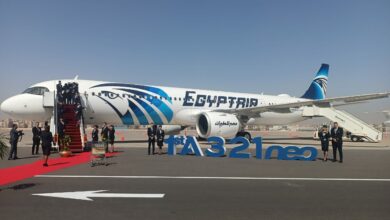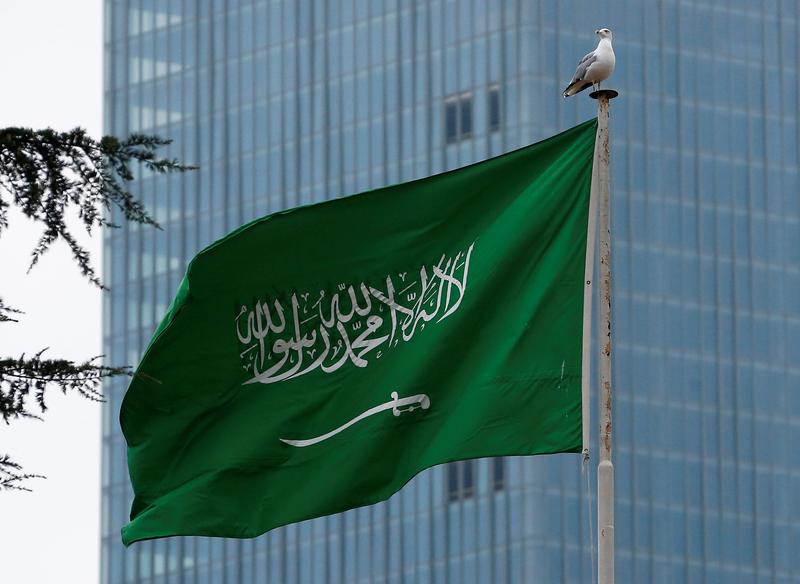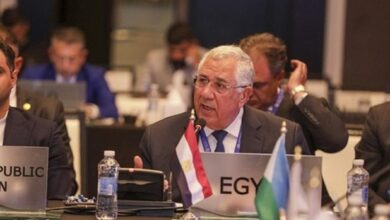Over a year ago, Gulf leaders pledged loan, grant and investment packages to rescue Egypt from financial disaster during its post-Mubarak transition. The offers were accompanied by generous expressions of brotherly support. But after months of waiting, it remains unclear how much money has actually arrived, in what amounts, and if the complete value of the Gulf promises will ever be delivered.
"These things are intrinsically opaque," said David Roberts, deputy director of the Royal United Services Institute for Defense and Security Studies in Qatar. "These are often just very large gestures; it’s really just a question of them following up on them."
But a failure on the part of Gulf countries to keep their word means Egypt is looking to the IMF and elsewhere for help with its liquidity crisis, and Egyptian officials have grown impatient.
Samir Radwan, Egypt’s first post-Mubarak finance minister, originally allayed fears of an economic catastrophe with the prospect of large amounts of money coming from the country’s Gulf neighbors.
In the months following 25 January 2011, generous aid offers from the oil-rich countries rolled in: US$3 billion from the United Arab Emirates, $10 billion, mostly in investments, from Qatar, and $4 billion from the Kingdom of Saudi Arabia.
Now, government officials who had made budget calculations based on the packages are in an increasingly tight spot.
Last year, Radwan said the injections would be a mix of investments, grants, and loans that could help the country’s economic rebound. But the massive loans and grants, supposedly with no strings attached, also raised suspicions of what interests the Gulf countries had in Egypt’s interim political process.
Radwan’s tenure was over by July, after another wave of protests swept the country. The country’s fiscal policy and budget fell into different hands.
Hazem al-Beblawy, Radwan’s successor, employed a similar approach, soliciting funds from Gulf leaders and royalty.
But after Gulf money failed to appear, Beblawy warned that the country was on the cusp of a “financial crisis,” and entered talks with International Monetary Fund officials to seriously discuss securing a loan from the fund.
The failure of Gulf countries to follow through with their pledges was a significant obstacle he faced during his time in office, Beblawy wrote in his recently published, memoirs, “Four months inside the government’s cage.”
In his book, Beblawy tells of his efforts to solve Egypt’s serious liquidity problem, when he approached Gulf leaders to tell them how badly the government needed their funds. From various conversations, Beblawy understood from Arab leaders that most had to decided to “wait and see” about political and economic stability in the country before transferring any money.
“I told them that this approach is dangerous and detrimental,” he wrote. “Egypt is a central country in the region, and it is not wise to wait and leave her without aid. Such behavior might lead to the deterioration economic and political conditions in Egypt, which then might bring about negative effects on the Arab region in its entirety.”
But in recent months, the countries have come under renewed pressure to deliver.
In his first parliamentary address in February, one of Prime Minister Kamal al-Ganzouri’s first moves was to point his finger at the Arab states for their broken promises.
His accusations returned the Gulf funds issue to the political forefront. Since Ganzouri’s speech, Gulf leaders have expressed renewed intentions to deliver.
But information about the loans and packages is impossible to come by outside official statements to chosen media outlets.
Repeated visits to the Saudi Arabian Embassy in Cairo and requests for interviews for the purpose of this story were ignored, and requests to the UAE and Qatar embassies did not receive a response.
Saudi Arabia remains committed to providing $3.75 million in aid to Egypt, the country’s ambassador to Egypt said in February, denying rumors that the aid was conditioned on a not guilty verdict for the former president.
“The kingdom does not bind its aid to not prosecuting Mubarak, and it is illogical that Saudi Arabia would link Egypt's destiny to the trial,” Ahmed Abdel Aziz Qattan, the ambassador, said on a talk show in March, refuting rumors that the Kingdom wanted to protect the deposed president.
“Half a billion dollars were transferred through the Egyptian Foreign Ministry bank account at the Central Bank of Egypt as a grant to support the budget on 16 May 2011," said Qattan.
Qatar has not invested the promised $10 billion in Egypt due to the country’s instability, said Qatari Foreign Minister Khaled bin Mohamed al-Attiya in late January.
He said that Qatar will follow through on its promises once power is handed over to a civilian government.
The United States has also said that Egypt’s Gulf friends should deliver the money to bolster the expected IMF loan.
“We call on Egypt’s friends in the region and around the world to be prepared to use bilateral assistance to reinforce an IMF program with Egypt,” US Secretary of State Hillary Clinton said in March.
There does seem to be a relationship between the arrival of the Gulf funds and the much-debated and disputed IMF loan. Approval from the fund is largely considered a vote of confidence in the competence and solubility of a government. Gulf leaders would likely see the IMF loan as a stamp of approval.
What has emerged is a chicken-and-egg dilemma for Gulf leaders who do not want to invest in a declining economy. Without the IMF loan, Gulf money won't come. Without Gulf money supporting its loan, the IMF is less likely to approve it.
In addition, analysts say the “wait and see” approach completely defies the purpose of the promised aid, and are baffled as to why the money hasn’t come. Waiting until economic conditions improve, they say, shows that the countries have only money-making interests.
“I’m really surprised at Qatar,” said Wael Gamal, managing editor of Al-Shorouk newspaper and economic commentator, during a January press conference on dropping Egypt’s debts. “They promised hundreds of millions in investment and none of it has come.”
It does not make sense to promise investments to help the country, Gamal said, if that same investment is only going to arrive if things improve.
The entire issue is based on rhetoric and official statements with no hard evidence, according to Amr Adly, director of the Economic and Social Justice Unit at the Egyptian Initiative for Personal Rights, at the same press conference.
Adly contends that the Egyptian government has failed to release reliable statistics in the interim period about foreign reserves, the country’s budget, and the Gulf funds.
“How can we even know how much money has been received?” he said. “How can we even know how much money has been given without real transparency?”
But Roberts said that Gulf countries can afford to make grandiose promises, because they operate entirely behind closed doors. That policy is unlikely to change.
"Here, or there, we don’t have anything approaching a transparent culture," he said, adding that it's unlikely to change because this is how they have historically managed their affairs. "And they've been successful," he said.




